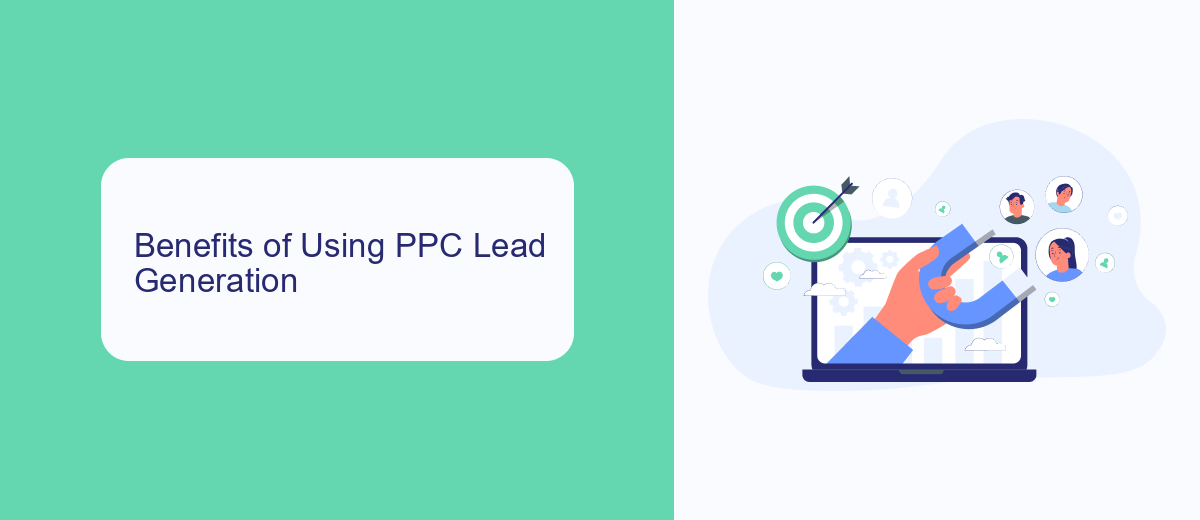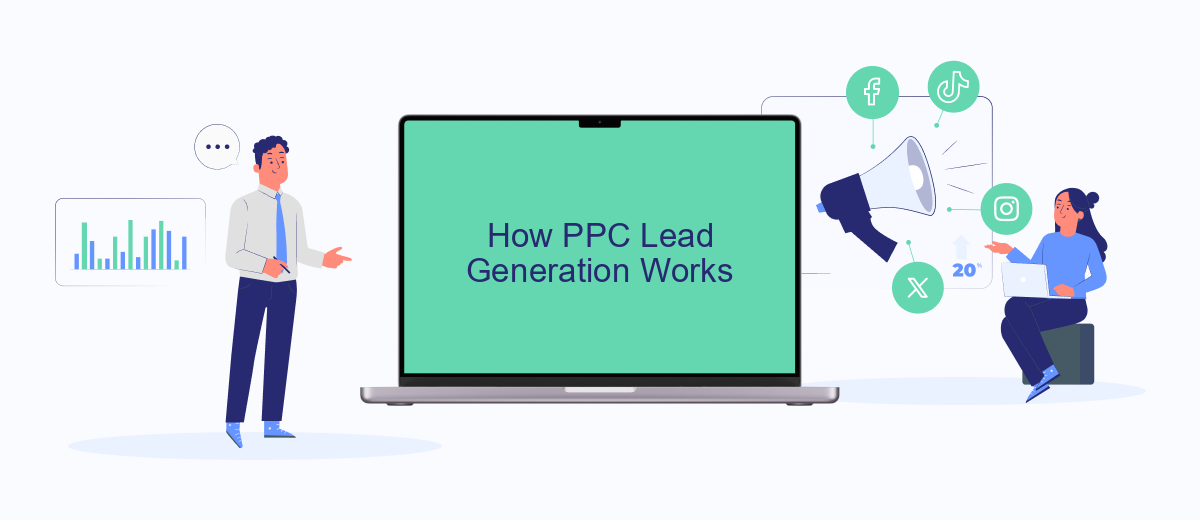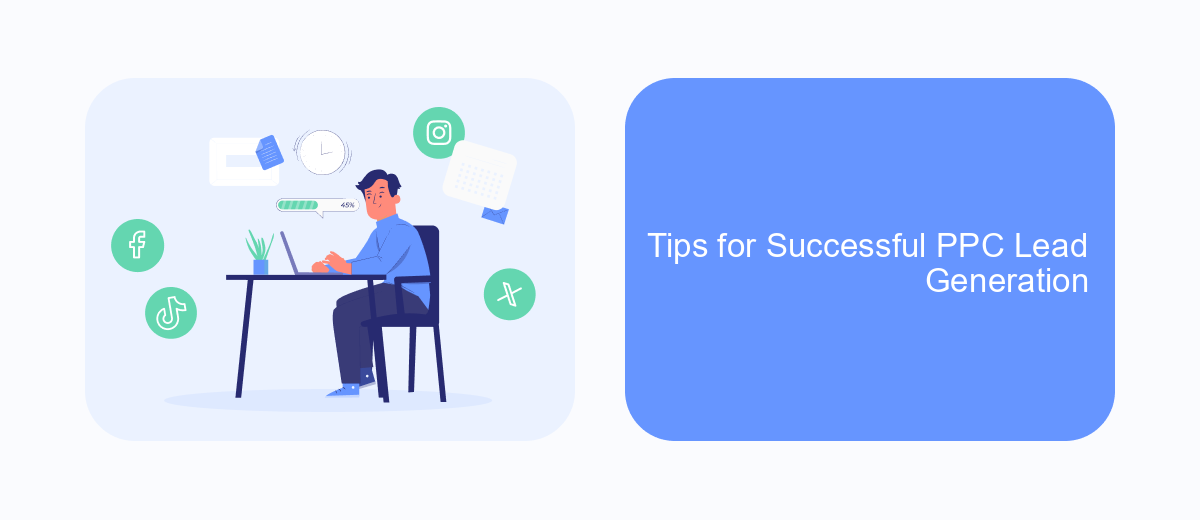PPC (Pay-Per-Click) lead generation is a digital marketing strategy where businesses pay a fee each time their ad is clicked, driving potential customers to their websites. This method is highly effective for attracting targeted leads and increasing conversion rates. In this article, we'll explore the fundamentals of PPC lead generation, its benefits, and how to implement it successfully for your business.
Definition of PPC Lead Generation
PPC (Pay-Per-Click) Lead Generation is a digital marketing strategy that involves creating and running paid advertisements to attract potential customers or leads. This method is designed to drive targeted traffic to a landing page or website where visitors can be converted into leads by filling out a form or taking another desired action.
- Targeted Advertising: PPC allows businesses to target specific demographics, locations, and interests.
- Cost Control: Advertisers only pay when someone clicks on their ad, making it a cost-effective approach.
- Measurable Results: PPC campaigns provide detailed analytics to measure performance and ROI.
Effective PPC lead generation often involves integrating various tools and services to streamline the process. For example, SaveMyLeads can automate the transfer of lead data from PPC campaigns to CRM systems, ensuring a seamless workflow. This allows businesses to focus on optimizing their campaigns and nurturing leads, rather than manual data entry.
Benefits of Using PPC Lead Generation

PPC lead generation offers numerous benefits for businesses looking to grow their customer base efficiently. One of the primary advantages is the ability to target specific demographics and interests, ensuring that your ads reach the most relevant audience. This targeted approach not only increases the likelihood of generating high-quality leads but also maximizes the return on investment (ROI) by minimizing wasted ad spend. Additionally, PPC campaigns provide real-time data and analytics, allowing businesses to monitor performance closely and make data-driven adjustments to optimize results continuously.
Another significant benefit of PPC lead generation is the speed at which it can deliver results. Unlike organic methods, which may take months to show significant progress, PPC campaigns can generate leads almost immediately after launch. This rapid lead acquisition can be crucial for businesses looking to scale quickly or meet urgent sales targets. Furthermore, integrating PPC campaigns with automation tools like SaveMyLeads can streamline the lead management process. SaveMyLeads simplifies the transfer of lead data to CRM systems, ensuring that no potential customer is overlooked and enhancing overall efficiency.
How PPC Lead Generation Works

PPC lead generation is a strategic approach that involves using pay-per-click advertising to attract potential customers and convert them into leads. The process is designed to target specific audiences and drive traffic to landing pages where visitors can provide their contact information in exchange for valuable content or offers.
- Keyword Research: Identify relevant keywords that your target audience is likely to search for.
- Ad Creation: Develop compelling ads that entice users to click through to your landing page.
- Landing Page Optimization: Design landing pages that are optimized for conversions, with clear calls-to-action.
- Campaign Launch: Set up and launch your PPC campaigns on platforms like Google Ads or Bing Ads.
- Monitoring and Adjustment: Continuously monitor the performance of your campaigns and make necessary adjustments to improve results.
- Lead Integration: Use tools like SaveMyLeads to automatically transfer captured leads into your CRM or email marketing system.
By following these steps, businesses can effectively use PPC advertising to generate high-quality leads. The key to success lies in continuous optimization and leveraging automation tools to streamline the lead management process, ensuring that no potential lead is lost.
Tips for Successful PPC Lead Generation

Successful PPC lead generation requires a strategic approach and careful planning. By focusing on key elements, you can maximize your return on investment and attract high-quality leads to your business.
First, ensure that your ad campaigns are targeted to the right audience. Utilize demographic data, interests, and behaviors to create tailored ads that resonate with your potential customers. Additionally, use compelling ad copy and eye-catching visuals to grab attention and drive clicks.
- Optimize landing pages for conversions by ensuring they are user-friendly and provide clear calls to action.
- Utilize A/B testing to identify which ad elements perform best and refine your campaigns accordingly.
- Leverage tools like SaveMyLeads to streamline lead management and integrate your PPC campaigns with your CRM system.
- Monitor and analyze your campaign performance regularly to make data-driven adjustments and improve results.
By implementing these tips, you can enhance your PPC lead generation efforts and achieve better outcomes. Remember, continuous optimization and staying updated with the latest trends are crucial for sustained success in PPC marketing.
Best Practices for PPC Lead Generation
To optimize PPC lead generation, start by conducting thorough keyword research to identify high-intent search terms that your target audience is using. Craft compelling ad copy that clearly communicates your value proposition and includes a strong call-to-action. Utilize A/B testing to compare different versions of your ads and landing pages to determine which combinations yield the highest conversion rates. Ensure your landing page is optimized for mobile devices and provides a seamless user experience, as a significant portion of traffic comes from mobile users.
Another best practice is to set up proper tracking and analytics to measure the performance of your PPC campaigns. Use tools like Google Analytics to monitor key metrics such as click-through rates, cost per lead, and conversion rates. Additionally, consider integrating your PPC campaigns with a lead management tool like SaveMyLeads. This service allows you to automate the process of capturing and organizing leads from your PPC campaigns, ensuring that no potential customer slips through the cracks. By leveraging these best practices, you can maximize the efficiency and effectiveness of your PPC lead generation efforts.
FAQ
What is PPC Lead Generation?
How does PPC Lead Generation work?
What platforms can be used for PPC Lead Generation?
How can I track and manage leads generated from PPC campaigns?
What are some best practices for PPC Lead Generation?
Personalized responses to new clients from Facebook/Instagram. Receiving data on new orders in real time. Prompt delivery of information to all employees who are involved in lead processing. All this can be done automatically. With the SaveMyLeads service, you will be able to easily create integrations for Facebook Lead Ads and implement automation. Set up the integration once and let it do the chores every day.
